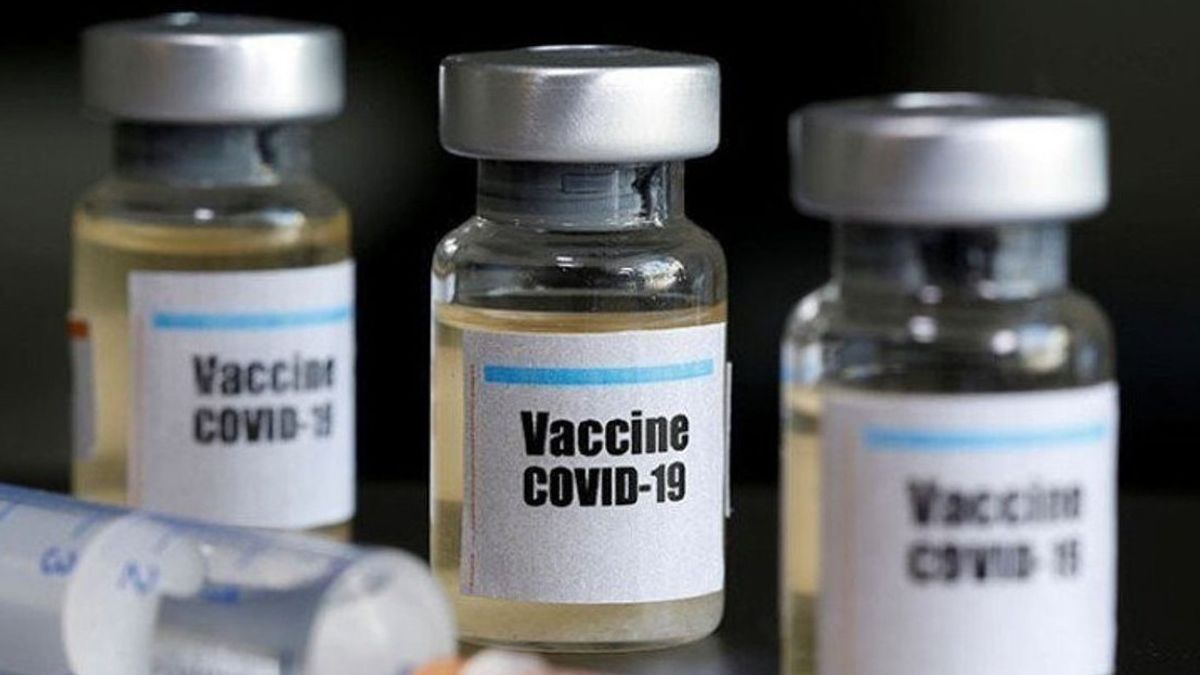JAKARTA - Member of Commission IX of the House of Representatives (DPR), Saleh Partaonan Daulay, highlighted the results of a survey by the Indonesian Political Indicator Survey Institute (IPI) regarding the national COVID-19 vaccination. According to him, the survey results regarding residents refusing to be injected with vaccines are serious findings.
"It turns out that many people do not want to be vaccinated. The number reaches 41 percent. This finding should not be underestimated. The government must work hard to convince people to participate in vaccinations", he told VOI, Monday, February 22.
The chairman of the PAN Faction of the Indonesian Parliament emphasized that the survey must be of serious concern to the government by disseminating the COVID-19 vaccination widely and massively to the public.
"It means that the government's campaign was not fully understood by the people. Hence, they are afraid and don't want to be vaccinated. Education is very important so that all of these people understand", said Saleh.
Saleh assessed that the public really needs to take part in vaccinations so that the IDR 134 trillion budget that the government has issued to deal with the COVID-19 pandemic in the country is not wasted.
"That is enormous. It must be effective. It must be used as much as possible. It must be in line with the targets set by the government!", he emphasized.
Meanwhile, regarding the penalties stipulated in Presidential Decree No. 14/2021 on Vaccine Procurement in the Context of the Coronavirus Pandemic, Saleh admitted to being pessimistic.
"I am not sure that the penalties mentioned in the new Presidential Decree 14 will increase public participation. I think that participation will increase if the education is carried out seriously throughout Indonesia", he explained.
According to Saleh, it is also unlikely that the imposition of penalties will be effective. This is because the majority of people do not want to be vaccinated. If for example they are given a fine, then they prefer to pay the fine.
"If you have paid a fine, will the problem be resolved? It will not. They still do not want to be vaccinated. If for example, we gave them an imprisonment penalty, is there enough for our remand center to accommodate them? Then, if they are detained, will the problem be resolved?".
Therefore, Saleh suggested that the government should return to education and a persuasive approach to the community. If they understand and believe, they will come to ask for the vaccine.
As is known, the Indonesian Political Indicator Survey Institute (IPI) published the results of a survey regarding the national COVID-19 vaccination. The result is that 54.9 percent of the people are willing to receive the vaccine. However, 38.4 percent of them refused to pay for vaccinations if they had to buy.
Meanwhile, 41 percent of respondents said they were not willing to receive the vaccine. The reasons were various, mainly because of the unconfirmed reasons for the side effects of the vaccine, 54.2 percent, then the effectiveness of the vaccine at 27 percent, feeling healthy or not needing 23.8 percent, and if you had to pay 17.3 percent.
"From these results, it shows that the level of public trust in various variants of the Corona vaccine appears to be low, but more generally, there are more people who do not believe it", said IPI Executive Director Burhanudin Muhtadi, Sunday, February 21.
The survey was conducted by telephone to 1.200 randomly selected respondents. With an error rate of approximately 2.9 percent and a confidence level of 95 percent.
The English, Chinese, Japanese, Arabic, and French versions are automatically generated by the AI. So there may still be inaccuracies in translating, please always see Indonesian as our main language. (system supported by DigitalSiber.id)









